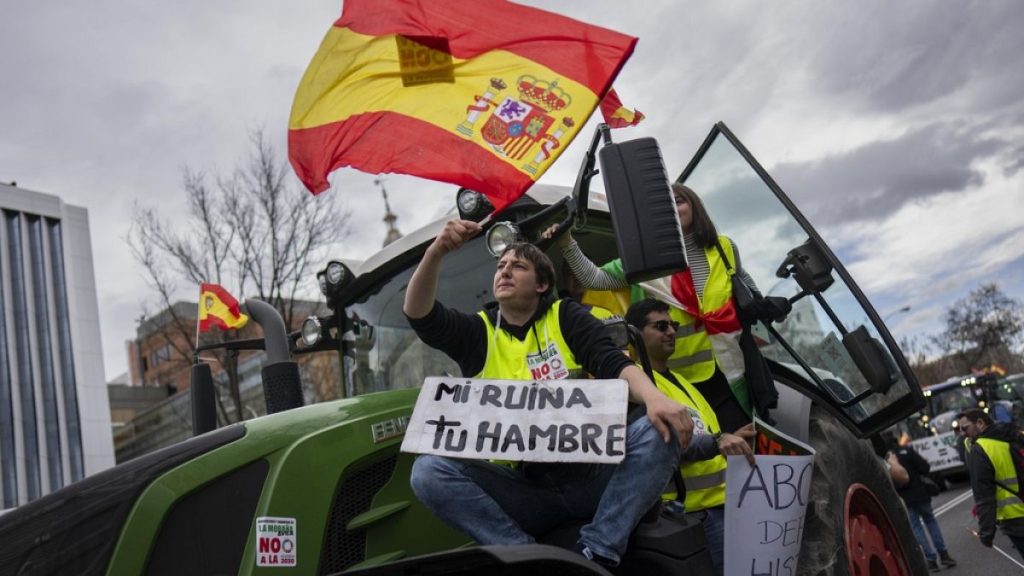A pan-European far-right movement, particularly in Valencia, is seeking to gain the support of farmers in the upcoming European elections in June. The movement, which includes various agricultural associations from different European countries, aims to advance their shared ideas with the European Conservatives and Reformists Group (ECR). They are calling for an end to the Green Deal, protection of the European internal market, and opposition to free trade agreements with countries like Ukraine, Morocco, and Mercosur. Despite being an independent movement, some figures within the movement have ties to the far-right, such as the nephew of a candidate from Spain’s Vox party. However, the movement is not aligning itself with any specific party but rather highlighting parties that have not supported farmers in the past.
Rural voters are becoming a key battleground for political parties in Europe, with new candidates emerging to challenge established parties like Spain’s Vox. However, major agricultural platforms are choosing not to directly contest elections, instead opting to influence political parties to incorporate their demands into their electoral programs. The SOS Rural platform, representing over 500 agricultural organizations, aims to shape policies at a broader European level by working with major political groups like the EPP and the Socialist group. Despite some similarities with Vox, SOS Rural appears to distance itself from the more conservative aspects of the Spanish far-right party. However, protests against EU agricultural policies may ultimately benefit Vox, as seen with the Yellow Vests movement in France whose votes largely went to Rassemblement.
The European far-right movement’s opposition to progressive policies like the Green Deal is resonating with farmers who feel threatened by these initiatives. They believe that the policies being pushed by Brussels are imposing burdens on farmers while allowing agricultural products from outside the EU to flood the market. This sentiment aligns with anti-elitism, Euroscepticism, and concerns about immigration, which are all themes that the far-right, including parties like Vox in Spain, often exploit for political gain. By positioning themselves as champions of rural interests and opponents of progressive policies seen as detrimental to farmers’ livelihoods, the far-right aims to attract support and influence elections across Europe.
The strategy of the far-right movement involves highlighting the perceived failures of mainstream parties and policies, particularly in the agricultural sector. By targeting parties that have not supported farmers in the past, the movement aims to demonstrate its commitment to representing rural interests and challenging the status quo. The use of symbols like the red cross to mark parties that have not been beneficial to farmers is a tactic aimed at directing voter anger towards established political entities. This approach, similar to the successful “Kick Them Out” campaign in the Netherlands, seeks to mobilize rural voters and sway election outcomes in favor of far-right groups.
Overall, the battle for the rural vote in Europe is intensifying, with far-right parties and movements seeking to capitalize on discontent among farmers. The alliance of agricultural associations from various European countries represents a coordinated effort to challenge progressive policies and influence the upcoming European elections. Despite efforts by mainstream parties to address rural concerns, the far-right remains a strong contender for rural votes by presenting itself as a champion of agricultural interests and an opponent of policies that farmers perceive as harmful. As the elections approach, the outcome will reveal the extent of the far-right’s success in mobilizing rural voters and influencing European politics.













